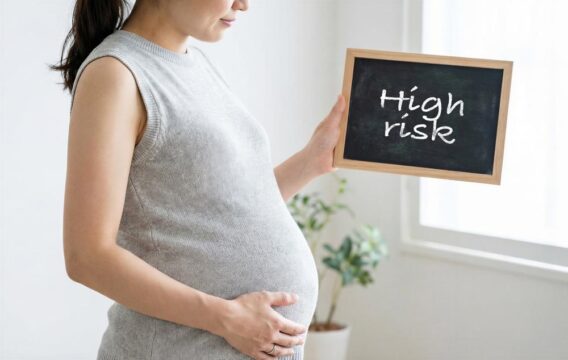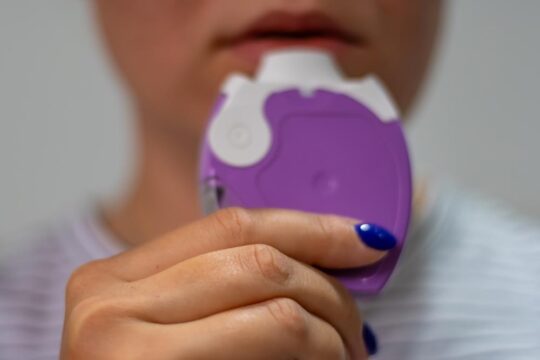Advertisment
What the papers say – weekly digest (20/10/23)

Your weekly digest of the top healthcare stories, covering news published from 16/10/2023 – 20/10/2023.
Daily Express
Thousands of women with incurable womb cancer can now access a drug that extends survival time in more than two-thirds of cases – a move heralded as a step change in treatment. The medicine, called dostarlimab, was given the green light last year for women who have undergone previous treatment, but now the Medicines and Healthcare Products Regulatory Agency has approved it as a first-line treatment. Studies show that in combination with chemotherapy, dostarlimab keeps the disease at bay for at least two years in 71 per cent of patients with a genetic, incurable type of womb cancer, compared with just 15 per cent given chemo alone. Also known as endometrial cancer, about 9,000 British women are diagnosed with the disease every year. It predominantly affects those who have been through the menopause, but obesity and excessive oestrogen caused by HRT increases the odds of development, too.
NHS doctors are rationing weight-loss jabs given to hundreds of dangerously obese children due to a national shortage – which has been triggered by a boom in private prescriptions. Experts are warning that the jab Ozempic, a treatment for patients with type 2 diabetes, is being used as a ‘lifestyle’ drug by people who want to shed extra pounds. People are paying upwards of £700 for a three-month supply of Ozempic on private prescription, while specialist NHS weight management clinics are telling parents of obese children as young as 11 to reduce their dosage and eke out what supplies they have. A jab designed specifically for weight loss, Wegovy, made by the same Dutch company, Novo Nordisk has been approved in the UK but demand is outstripping supply.
Researchers say that humming twice a day can drastically reduce stress levels, with the news coming after Mental Health Foundation research showed that seven out of ten UK adults have been overwhelmed by stress at some point. For the new study, 23 men and women – all aged between 18 and 60 – wore a device that measured their heart rate during emotionally-stressful situations, as well as when they exercised, slept and carried out humming sessions. Each of the sessions involved inhaling for up to four seconds and then exhaling for six to eight seconds while humming. Data published in medical science journal Cureus shows that the participants were at their least stressed when they were humming – 2.3 times less than during emotional scenarios or exercise, and even 12 per cent less than when asleep.
More than a quarter of retirees over 55 were forced to stop working because of ill-health, redundancy or to provide care for a family member, according to research carried out by retirement finance specialists Just Group. Almost half (45 per cent) of retired and semi-retired people said they had given up work earlier than they had expected. A third (33 per cent) said that they retired sooner than first thought as a consequence of ill health or physical impairment.
Women who follow a plant-based diet have a lower risk of developing high blood pressure in pregnancy, a study shows. An analysis of more than 11,000 women found those with the highest proportion of plant to animal-based products in their diet also had less chance of developing the potentially serious condition pre-eclampsia. Study author Dr Jorge Chavarro, a professor of nutrition, epidemiology and medicine at Harvard University’s Medical School and School of Public Health, says: ‘’We have seen that this type of diet, if it’s a quality diet, may be associated with health benefits.’’
Daily Telegraph
Scientists have made a ‘’tremendously exciting’’ breakthrough in prostate cancer treatment by discovering how to reverse drug resistance in tumours. Men with advanced prostate cancer often stop responding to treatments because their immune system adapts and learns how to evade the drugs. However, a team at the Institute of Cancer Research in London have managed to resensitise tumours to treatment by targeting myeloid white blood cells – a type of immune cell that usually helps fight diseases but can be ‘’hijacked’’ by cancer to aid the growth of tumours. The ‘’revolutionary’’ advance has paved the way for an ‘’entirely new way to treat prostate cancer’’, offering hope to the 52,000 men diagnosed with the disease in Britain each year. Scientists think it could also work on other cancers.
The number of hospital beds in England has fallen by almost 3,000 since ministers made promises of 5,000 new beds before winter, prompting warnings that patients are being ‘’warehoused’’ in emergency departments. Nurses are said to be run ragged dealing with the equivalent of a full ward of patients waiting in casualty due a lack of beds, while patients are receiving ‘’less good care, in the wrong place’’, the UK’s top A&E doctor warned. Emergency medicine leaders feel let down by a lack of progress since the prime minister and health secretary joined NHS chiefs in January in a ‘’recovery plan’’ for urgent and emergency care that promised ‘’5000 more staffed, sustainable beds in 2023-24’’. The NHS has hit a target of opening 10,000 beds on ‘’virtual’’ wards before winter. Such wards allow patients to be treated at home using technology such as apps and wearables that enable clinical staff to monitor recovery remotely. An NHS spokeswoman said: ‘’There are hundreds more hospital beds open now compared to this time last year, and work continues towards delivering our recovery plan commitment of 99,500 core beds.’’
AI chatbots could be better than GPs at treating depression and knowing what medication to prescribe, a study shows. A team in Israel gave descriptions of eight hypothetical patients with symptoms of depression to the artificial intelligence program ChatGPT. The chatbot was asked what treatment it would recommend for these patients, in line with medical standards, and its answers were compared with those of 1,249 human GPs working in France. The study, published in the journal Family Medicine and Community Health, found that the AI program was better at following treatment standards for depression and less likely to prescribe drugs for those with mild symptoms, favouring psychotherapy instead. Lead author Professor Inbar Levkovich, from Oranim Academic College in Israel, said: ‘’ChatGPT…. has the potential to enhance decision-making in primary healthcare.’’
Rishi Sunak has been urged to hold his nerve over plans to phase out tobacco, despite a backlash from critics. The proposal changes would see the legal smoking age increase by one year, every year until cigarette sales have ended. But the plans have been branded ‘’illiberal and unconservative’’ by opponents, including the Institute of Economic Affairs. Cancer Research UK said the habit caused half a million hospital admissions every year in England, and 75,000 GP appointments could be avoided each month if the country became cigarette free.
Young girls are travelling to Wales and Scotland for Botox injections after the treatment was banned for under-18s in England, campaigners have said. It comes after the age limit for undergoing cosmetic procedures, including Botox and lip fillers, was introduced in England in 2021. No such law exists in Wales and Scotland, creating a loophole that industry professionals say is being exploited by some teenagers. Save Face, a government-approved register for medical aesthetic treatments, said it had received reports of girls as young as 15 were ‘’crossing the borders to find people that are willing to inject them’’.
The Guardian
Pregnancy screening that is not offered on the NHS could reduce premature births by up to two thirds, a study has claimed. Screening for abnormal vaginal bacteria could ‘’significantly reduce the risk of preterm births’’, according to a study of almost 150,000 pregnancies from across the world. Experts claim that when the balance between good and bad bacteria shifts and the vagina becomes more alkaline, it allows harmful bacteria to multiply. This can lead to infections, a shortening of the cervix and eventually premature births, researchers at Semmelweis University, Hungary, said. Currently, the UK National Screening Committee does not recommend the use of screening because ‘’there is no evidence that it would be able to accurately identify women at risk of having problems in labour’’. The paper was published in Scientific Reports.
The common antidepressant Prozac could treat some symptoms of long Covid, a study suggests. It is estimated around a million Britons have prolonged debilitating symptoms after Sars-Cov-2, but the condition remains mysterious and there is no known cure. A study now suggests many of the symptoms could be because the viral infection reduces the brain’s level of serotonin, a chemical linked to mood and depression. Scientists at the University of Pennsylvania believe taking SSRI antidepressants, such as Prozac, which increase serotonin in the brain, could trigger biological changes that combat some neurological and cognitive long Covid symptoms, such as brain fog.
Scientists have found that there is a benefit in being a fast walker as they live longer and are less likely to die of cancer or heart disease than dawdlers. Data from almost 400,000 Britons followed for more than a decade show people who consider themselves to be ‘’brisk walkers’’ are more than 25 per cent less likely to die of cancer than slow walkers. The risk of dying from cardiovascular disease was also about 60 per cent lower in fast walkers, and the risk of dying from any other cause was about 70 per cent lower. Health information was gathered from the UK biobank project as well as the NHS file of each participant. Data was recorded until the end of September 2021 and Covid accounted for one in 11 non-cancer and non-cardiovascular disease deaths, so these were excluded.
Having your tonsils removed as a child makes you a third more likely to suffer a severe form of arthritis in later life, scientists say. They also found having older siblings raises the risk by 12% to 34% of ankylosing spondylitis, a long-term condition in which the spine and other areas of the body become inflamed. The findings bolster the theory that infections in youth trigger the development of the problem. A Swedish team looked at health and family information in national population registries in order to compare exposure to various early life risk factors. Patients studied had to have made at least one specialist clinic visit and been diagnosed between 2001 and 2022.
Witnessing natural disasters has negative effects on physical health for over a decade, a study has revealed. Women who survived the 2004 Indonesian tsunami had low cortisol levels 14 years later. The stress hormone rises in fight or flight responses. Constant elevation can affect the axis where it is released. Low cortisol causes dizziness, moods, weight loss and weak muscles. Research from the US and Indonesia said it could give ‘’insights into longer-term impacts of climate change’’. Results were in the Proceedings of the National Academy of Sciences journal.
All underground, Overground and Dial-a-Ride vehicles in London have had defibrillators installed to tackle heart failure emergencies. The life-saving devices are now at bus stations and Thames piers as well. Heart-shaped QR codes on devices in the Transport for London network also link to a video lesson on CPR. London Mayor Sadiq Khan announced the change on World Restart A Heart Day – after paramedics in the capital responded to 13,000 cardiac arrests last year. He said: ‘’This rollout and education drive will ensure people travelling in our city feel safe.’’
The Times
A cap that reads brain waves could save patients who have had strokes by identifying the condition before they reach hospital, scientists said. Out of every 10 stroke patients, one or two will receive urgent surgery. The new device which has been trialled by ambulance crews in the Netherlands, can spot them in a matter of minutes – allowing for the most appropriate treatment as quickly as possible. An ischemic stroke usually occurs when a blood clot blocks a blood vessel, disrupting blood supply to the brain. Prompt care is crucial. A study published in Neurology looked at whether a cap fitted with eight electrodes could be used to identify the most serious cases. The device takes an electroencephalogram (EEG) reading, which reveals the electrical activity of different brain regions.
Adults with ADHD are nearly three times more likely to develop dementia, new research shows. Scientists looked at data on 109,000 people in Israel, with an average age of 58, of whom 730 were diagnosed with attention deficit hyperactivity disorder as adults. They were followed over the next two decades, during which 7,726 of the participants, or 7.1 per cent went on to be diagnosed with dementia. The study, published in the journal JAMA, provides the clearest evidence yet of a strong link between ADHD and dementia. Scientists are unsure what causes the link, but said similar genetic or biological pathways are involved in both conditions.
The amount of rehabilitation offered to stroke survivors should be quadrupled, according to new guidance. The treatments watchdog said that patients recovering after a stroke in England should initially receive three hours of rehabilitation therapy per day for at least five days a week. Existing guidelines from the National Institute for Health and Care Excellence (Nice) suggest 45 minutes per day, but experts said that more would mean a better chance of recovery. There are about 85,000 strokes per year in England, and it is a leading cause of adult disability.
Genetic tests to predict the risk of heart disease and cancer miss nine in ten cases and should not be used by the NHS, a large study has found. The research by University College London, said that widespread ‘’polygenic risk scoring’’ was ‘’not useful’’ and consumers should be wary of buying the tests privately. Polygenic scoring involves analysing DNA to predict how prone someone is to diseases, based on whether they carry versions of genes shown to increase risk. Scientists have suggested it could revolutionise medicine by allowing patients to start preventative treatment early.
Women must be offered support from their workplaces and routine ‘’menopause checks’’ by the NHS after turning 40 to improve treatment and stop them leaving their jobs, MPs have said. The NHS is being urged to include menopause symptoms in its ‘’mid-life MoT’’ to see if women could benefit from hormone replacement therapy. About 80 per cent of women going through the menopause experience some symptoms at about 50, which typically continue for about four years. Twenty per cent have severe problems that interfere with daily life.
Novo Nordisk, which produces Wegovy, the weight-loss drug, has agreed to buy a blood pressure medicine from KBP Biosciences for up to $1.3 billion. Ocedurenone is undergoing a late-stage trial in patients with uncontrolled hypertension – when their blood pressure remains high despite taking two or more treatments to lower it – and advanced chronic kidney disease. The Danish group said the deal would help it to expand from diabetes to other illnesses.





